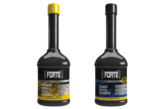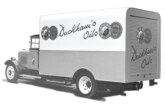
CVW spoke to Mike Bewsey, chair of the Verification of Lubricant Specifications (VLS), about why misleading marketing claims continue to cause issues in the lubricants sector.
How can you be sure that the oil selected for a vehicle is up to the job? Gone are the days when any 15W-40 would do. Just as engines have become increasingly sophisticated over the past few years, so have engine oils. Smaller capacity engines are running at higher power outputs to maximise efficiency and deliver fuel economy alongside the use of exhaust after-treatment devices to reduce emissions. The need for compatibility with emission control devices, and longer oil drain intervals, taken together with smaller sumps, have created the need for lower viscosity, synthetic or semi-synthetic oils to provide the essential lubrication required in challenging conditions.
The market for engine oil may have become more confusing, but the choice matters even more. Using the wrong oil risks accelerated wear to critical engine components, reduced effectiveness of emission control devices and customer complaints, something any vehicle workshop wants to avoid.
Workshops need to be confident that the lubricant they select is fit for purpose. But according to independent trade body, the Verification of Lubricant Specifications (VLS), products may not always be what they seem.
“VLS has recently opened four new cases following complaints about misleading marketing claims on several engine oils.” Mike Bewsey, chair of VLS (UK), comments. “Case 178 concerns 10W-40 engine oil and the compatibility between OEM specifications and SAE viscosity ratings, along with the product’s own performance claim against its technical specification. The product is currently being sourced and tested.
Case 176 concerns 0W-30 engine oil and its ability to meet its claim against an OEM specification alongside the product’s NOACK (evaporation) limits required in order to be compliant. The product is being sourced for independent testing.
Case 177 concerns 5W-30 engine oil and its ability to meet claims against ACEA C2 and ACEA C3, alongside MB 229.51 and MB 229.52. The complaint has been superseded by a later complaint as it is not available for sale in the open market.
Case 178 concerns 10W-40 engine oil and the compatibility between OEM specifications and SAE viscosity ratings, along with the product’s own performance claim against its technical specification. The product is currently being sourced and tested. Case 179 concerns 5W-40 engine oil and its compatibility between OEM specifications claimed and also against one of the ACEA light-duty engine oil sequences. This product was investigated and found to be compliant with its marketing claims.
This evidence suggests that product marketing might not, in some cases, be as accurate as it should be.”

Over the past five years, all of the cases investigated by VLS have concerned performance claims relative to market standards, such as conflicting or unevidenced OEM specifications or market standards such as ACEA engine oil specifications.
Products claiming that they meet certain specifications or are suitable for use in vehicles need to be supported by relevant technical documentation and backed up by the technology provider or they risk being unproven or, at worst, simply untrue.
The VLS Marketing Claims Guidance is very clear about why clarity and consistency in lubricant blenders, manufacturers, and marketers’ use of these marketing claims is so important. End users must be able to make informed decisions on the correct lubricants for a vehicle and be confident that a lubricant is suitable for use in their application.
VLS considers there are three types of generic marketing claims, of which two are common:
1. Approved
This means that the product name has been registered with the approval authority and a reblend approval was sought and obtained.
2. ‘Recommended for use’, ‘Suitable for use’ or ‘Meets the requirements of’, amongst other terms
These terms indicate that the marketer is making an informed, professional judgement based on supporting technical evidence regarding the suitability of a given lubricant to a stated application. These terms can include the following cases:
- an approval exists on the formulation being used, but the marketer has decided not to pursue a formal reblend approval for his product name.
- an approval is not technically possible, e.g. claims which are self‐certified and there is no body to grant approval (e.g. ACEA sequences).
- the specification is technically obsolete, or one or more tests are currently unavailable, but, on the basis of a technical judgement, e.g. similarity with previously tested materials, the product would fully meet all the requirements of the specification.
- the lubricant marketer or technology provider has sufficient, robust and relevant supporting data for the recommended application. This should be on the basis of engine test data against the requirements of the OEM specifications and/or data from substantial field trials where appropriate.
3. Not suitable for use
In practice, this would normally be indicated simply by the omission to claim one of the above classifications for the product.
In all cases involving marketing claims, it is the responsibility of the product marketer to ensure that they have sufficient data from a technically competent individual or organisation to justify any such claims.
“It is understandable that with margins under pressure, lubricant marketers are keen to service the maximum number of applications with the minimum number of products,” Mike adds. “But they must be able to prove their marketing claims. VLS plays a vital role in ensuring that lubricants are labelled accurately. This includes working with Trading Standards if required to ensure that robust action is taken and incorrectly marketed products are brought into line.”
In 2020, VLS entered into a primary authority relationship with Buckinghamshire & Surrey Trading Standards to support greater compliance for members and the industry by providing assured advice on lubricant marketing issues and the basis of claims in consumer law, as well as providing an intervention and escalation route for non-compliant products in the case of non-cooperative lubricant marketers.








